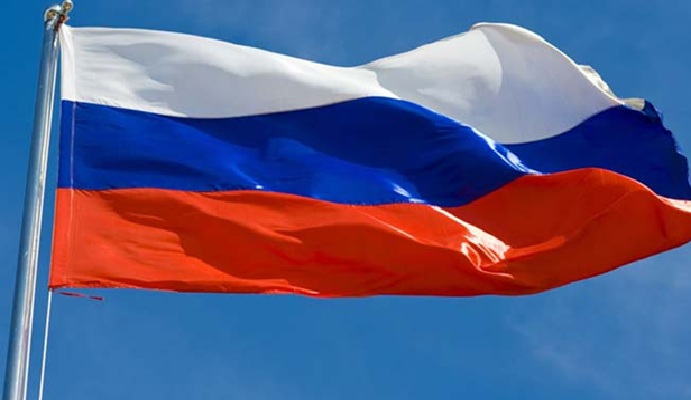
Afrasianet - Russian President Vladimir Putin questions the legitimacy of Ukrainian President Volodymyr Zelensky and assures his readiness to meet with him only at the final stage of negotiations, rejecting an unconditional ceasefire.
Russian President Vladimir Putin said NATO's efforts to increase defense spending "do not pose a threat to Russia", days before the alliance signed a plan to boost its military capabilities across Europe.
This comes as NATO prepares to hold a crucial meeting in The Hague next week to discuss raising defense spending to 5% of member countries' GDP, under pressure from US President Donald Trump.
Speaking to reporters late at night in St. Petersburg, Putin said his country was "self-sufficient in terms of ensuring its security" and constantly working to "modernize its armed forces and defense capabilities."
Although he noted that the move could create "certain challenges", he considered that it "will not be of any use", adding: "We will address all the threats that may arise, and there is no doubt about that."
Putin also said that his forces were "advancing along the frontline" in Ukraine, and were achieving "daily field successes," stressing that this progress continues.
Meeting Zelensky?
As Kiev seeks security guarantees from NATO in any future agreement to stop the fighting, Putin questioned the legitimacy of Ukrainian President Volodymyr Zelensky, saying that he "does not have the right to sign a peace agreement due to the end of his 5-year term."
Despite this, Putin expressed his willingness to meet Zelensky only in the "final stage" of peace negotiations, saying: "I am ready to meet everyone, even Zelensky (...) We don't care who negotiates, even if he is the current head of the regime."
He added that the desired solution should not be limited to ending the current conflict, but should be established to "prevent the recurrence of similar conflicts in the long term."
Moscow conditions and Ukrainian refusal
The Russian president rejected Zelensky's calls for a direct meeting to reach a peace agreement, and Moscow also rejected proposals for a complete and unconditional ceasefire, conditional on the withdrawal of Ukrainian forces from 4 regions announced by Russia annexation, and Kiev's abandonment of its efforts to join NATO, and reduce the size of its army.
Kiev rejects Russia's demands. While political talks reached an impasse, Russia stepped up its air attacks on Ukraine.
Russia: We have taken the necessary measures to repel any potential threats from NATO
The Russian deputy foreign minister stresses that all NATO activities on the eastern flank are "in fact one big maneuver, united by the general idea of containing Russia."
Russian Deputy Foreign Minister Alexander Grushko said Moscow was "closely monitoring all NATO exercises," including its Baltops in the Baltic Sea, stressing that it had "taken the necessary measures to repel any potential threats from the alliance."
In remarks to Russia's RIA Novosti news agency, Grushko said all NATO activities on the eastern flank were "actually one big manoeuvre, united by the general idea of containing Russia."
In this context, Grushko explained that these activities are "divided into parts, to appear less threatening," adding that the Russian military "understands everything, and therefore, we are ready to repel any threats."
"The Baltic Sea turns into a military confrontation zone"
Grushko's remarks, on the sidelines of Moscow's Future Forum 2050, came after he warned Tuesday that the Baltic Sea "is undergoing dangerous transformations, making it a military confrontation zone, with the possibility of conflict at any moment."
He noted that the Baltic Sea "was previously a militarily quiet area", but that the situation has changed, due to "artificial confrontation and the demonization of Russia, imposed by the West".
NATO's annual Baltobs exercise began on June 3 and is scheduled to continue until June 20.
Kremlin: Russia will retain freedom to deploy medium- and short-range missiles
The Kremlin confirms that Russia now retains the freedom to deploy medium- and short-range missiles, after the end of the treaty with Washington, blaming NATO for the military escalation near the Russian border.
Kremlin spokesman Dmitry Peskov said Russia will act freely on the issue of medium- and short-range missile deployment, with the expiration of the Intermediate-Range and Shorter-Range Missile Treaty between Moscow and Washington.
Peskov explained that Moscow sees itself compelled to respond to NATO expansion near its territory, noting that "at some point, when there is nothing to restrict our movements, we will retain this freedom of action."
Russian Deputy Foreign Minister Sergei Ryabkov said earlier that the ban on the deployment of these missiles was coming to an end logically, accusing the West of not showing the same level of restraint that Moscow has shown since the collapse of the Intermediate-Range and Shorter-Range Missile Treaty.
In June last year, Russian President Vladimir Putin announced during a meeting with the National Security Council that his country needed to start producing medium- and short-range land-based missiles as a direct response to the steps taken by the United States in this area.

